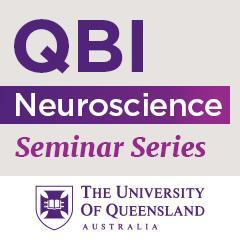Professor Linda Richards, UQ : "Interhemispheric axonal plasticity in developmental brain disorders"
Speaker:
Professor Linda Richards PhD FAA FAHMS
Queensland Brain Institute, The University of Queensland
Title: "Interhemispheric axonal plasticity in developmental brain disorders"
Abstract:
The corpus callosum is the largest fibre tract in the human brain. It connects neurons in the left and right cortical hemispheres of the brain and is important for sensory-motor integration, language and complex social interactions. Malformations of the corpus callosum occur in 1:4000 live births, making it one of the most common neurological birth defects. The outcome for these individuals can range from very high functioning in isolated agenesis to severely affected individuals whose callosal malformation is part of a syndrome. Evidence from both human MRI/tractography studies and animal models is confirming that there is a high degree of long-range axonal plasticity in interhemispheric connectivity and that these circuits are not hard wired in a pre-determined manner. Indeed, some affected individuals display interhemispheric connectivity via ectopic axonal tracts. Our objective is to understand what mechanisms drive callosal connectivity and cortical circuitry, allowing for plastic changes to wire the brain correctly. Developmental mechanisms required to form the corpus callosum include both activity-dependent and molecular guidance signals as well as the development of midline glial populations that are crucial for callosal formation. These mechanisms are disrupted in a variety of human developmental brain disorders associated with dysgenesis of the corpus callosum.
About Neuroscience Seminars
Neuroscience seminars at the QBI play a major role in the advancement of neuroscience in the Asia-Pacific region. The primary goal of these seminars is to promote excellence in neuroscience through the exchange of ideas, establishing new collaborations and augmenting partnerships already in place.
Seminars in the QBI Auditorium on Level 7 are held on Wednesdays at 12-1pm, which are sometimes simulcast on Zoom (with approval from the speaker). We also occassionally hold seminars from international speakers via Zoom. The days and times of these seminars will vary depending on the time zone of the speaker. Please see each seminar listed below for details.



